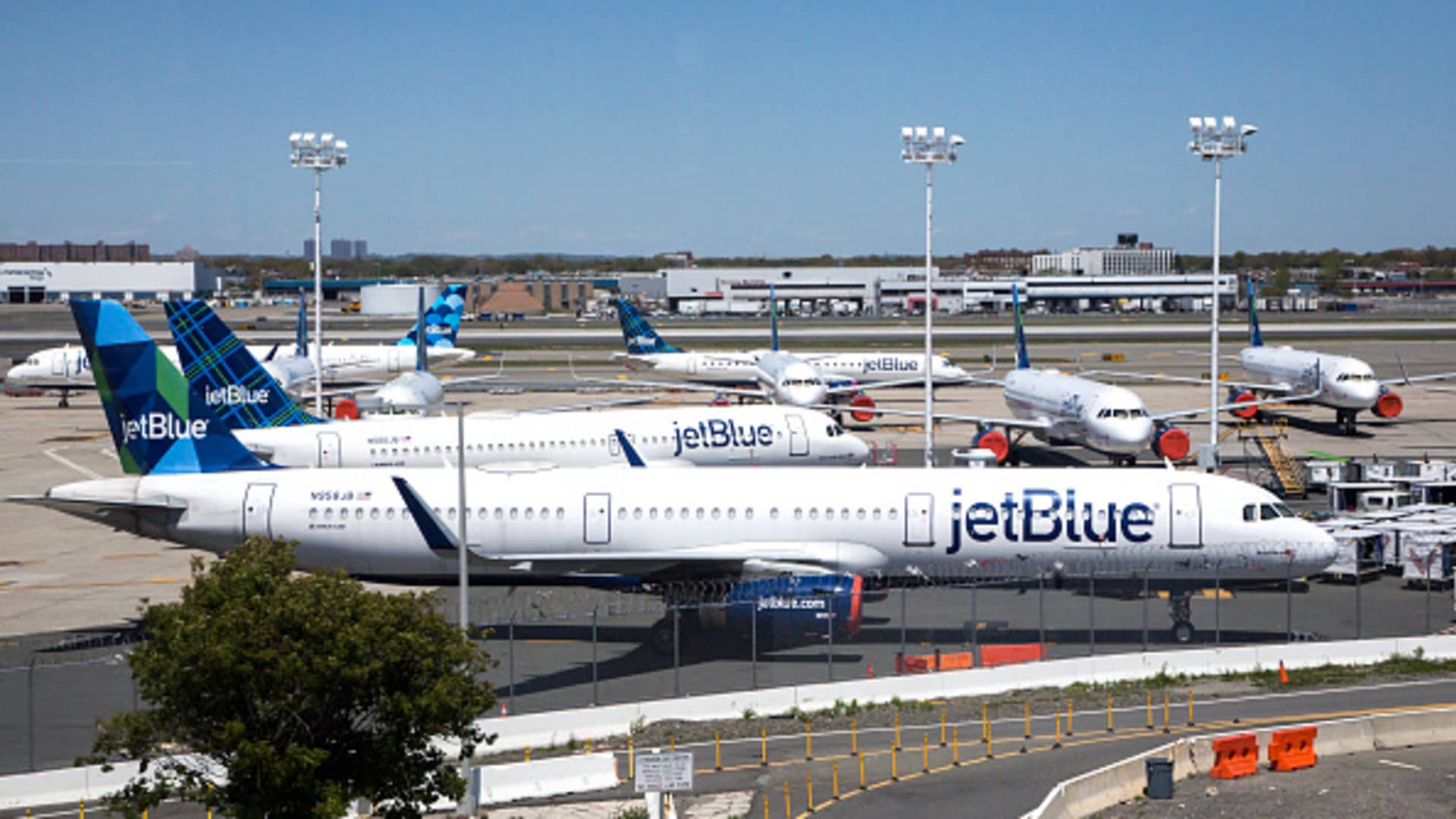
JetBlue on Wednesday said its $3.6 billion all-cash bid for ultra-low cost carrier Spirit Airlines would help it grow across the country and better compete against larger airlines.
The bid, which Spirit called “unsolicited,” casts doubt on the latter’s planned tie-up with Frontier Airlines. Spirit shares surged more than 22% on Tuesday after news of the offer broke, but were down 3% in morning trading Wednesday. JetBlue and Frontier were each down 8%.
Frontier and Spirit have similar business models: low fares, sparse onboard service and fees for everything from hand baggage to seat selection.
JetBlue, on the other hand, has spent years building up its Mint business class service that includes lie-flat beds and full meals. The same day it announced its surprise bid for Spirit, JetBlue also announced start dates for its first flights from Boston to London.
But JetBlue is mostly concentrated in domestic travel. The Spirit deal, if approved by antitrust officials in the Justice Department, would give JetBlue more breadth and ability to compete with larger carriers, executives said Wednesday.
It would also allow JetBlue to quickly grow its fleet thank to a large Airbus orderbook both carriers have as well as increase its headcount, particularly pilots. JetBlue CEO Robin Hayes said on a call with analysts on Wednesday morning that he expects the pilot shortage in the U.S. to persist for several years.
JetBlue didn’t disclose how much it would cost to reconfigure Spirit’s Airbus planes to match JetBlue interiors, which have inflight entertainment like seatback screens fewer seats, but the carrier said it would be “a multi-year” capital expenditure.
The airline’s bid for Spirit confounded some analysts.
UBS called it a “headscratcher.”
“Wait, What?” asked MKM Partners.
Bank of America said while both JetBlue and Spirit have Airbus planes “we struggle to find additional benefits for JBLU.”
Raymond James downgraded JetBlue to market perform after the announcement and said product and labor would be tough to combine.
“The process is also likely to distract or possibly unwind current initiatives, most notably the Northeast alliance with American,” Raymond James Savanthi Syth wrote. “Moreover, the prospect of elevated debt, even if manageable, is likely to be an overhang on investor sentiment.”
The Biden administration has been scrutinizing mergers and other alliances.
The Biden administration sued last year to block JetBlue’s partnership with American Airlines, which allows the airlines to coordinate routes in airports in the New York City area and Boston.
Asked whether JetBlue would give up that alliance to get a deal with Spirit through regulators, JetBlue CEO Hayes said on the analyst call that the deal is “complementary” to its American Airlines’ partnership.




